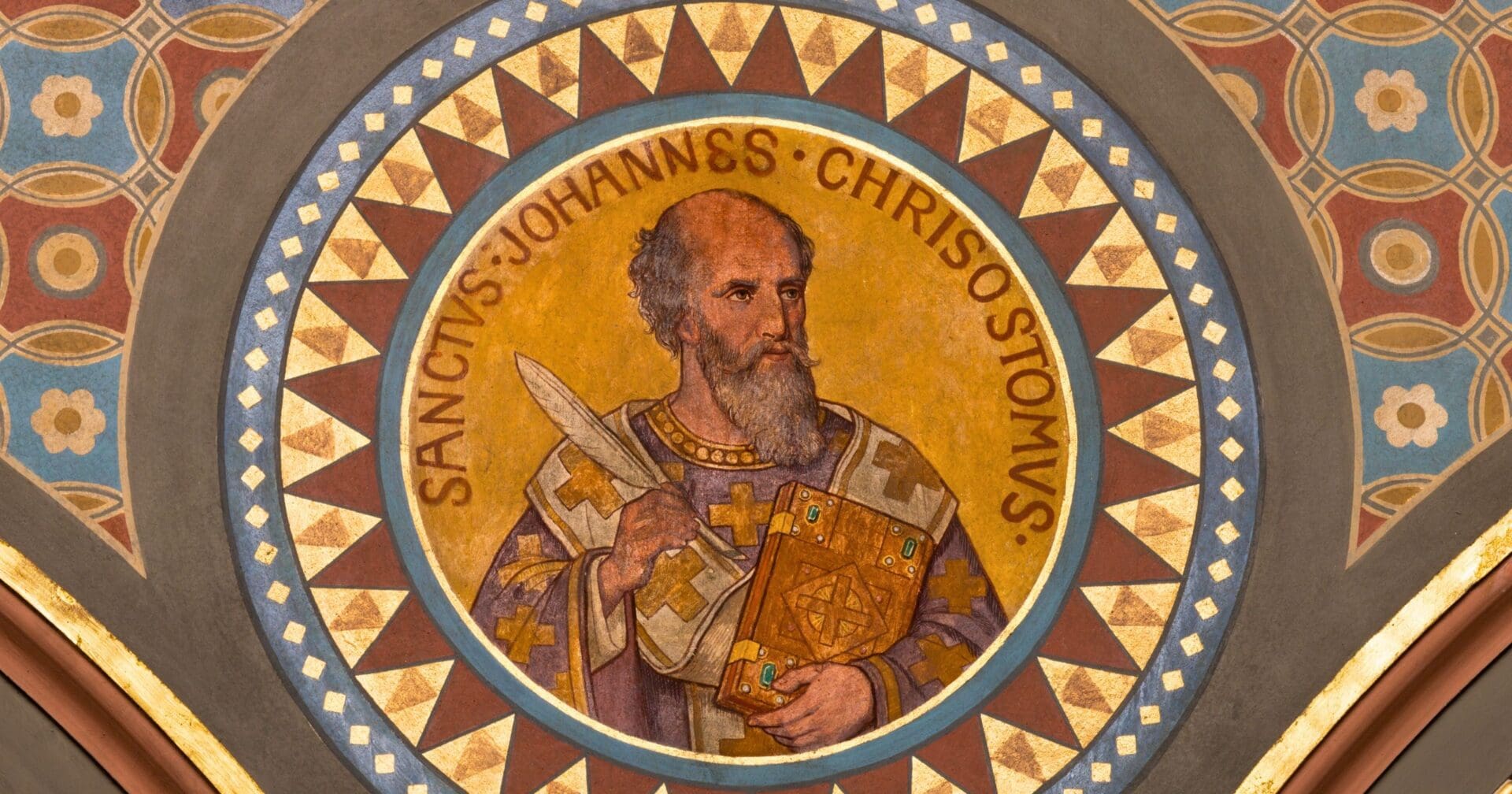Born around 347 AD, Saint John of Antioch became renowned as Chrysostom, which means “golden-mouthed,” a testament to his exceptional eloquence. Born to devout Christian parents in Antioch, his mother was an epitome of virtue even at a young age of 20. St. John honed his rhetorical skills under the tutelage of the famed pagan orator, Libanius.
By 374, he chose a life of seclusion as an anchorite in the mountains adjacent to Antioch. However, due to health issues, he had to return to Antioch in 386, where he was subsequently ordained as a priest.
The year 398 saw his elevation to the prestigious See of Constantinople, solidifying his position as one of the Church’s luminaries. Yet, his prominence did not come without challenges. Among his adversaries were some from ecclesiastical circles, notably Theophilus, the Patriarch of Alexandria, who later expressed regret for his actions. Yet, the most formidable of his opponents was Empress Eudoxia, who took umbrage at his straightforward, apostolic sermons. A sham council led to allegations against him, resulting in his exile.
Despite the adversities, St. John’s spirit remained unbroken, drawing solace and strength akin to his revered apostle, St. Paul. The Pope’s unwavering support was a source of great consolation to him during these tumultuous times. However, his adversaries sought to exacerbate his ordeal, further banishing him to the far reaches of the Empire, to Pythius. En route to this remote exile, St. John Chrysostom passed away on September 14, 407.
Editorial credit: Renata Sedmakova / Shutterstock.com




















Faithful saint.
Saint John Chrysostom, pray for us!
St. John Chrysostom, pray for us.
St. John Chrysostom, pray for us.
St. John Chrysostom, pray for us.
Saint John Chrysostom please pray for us
Saint John Chrysostom, please pray for us amen